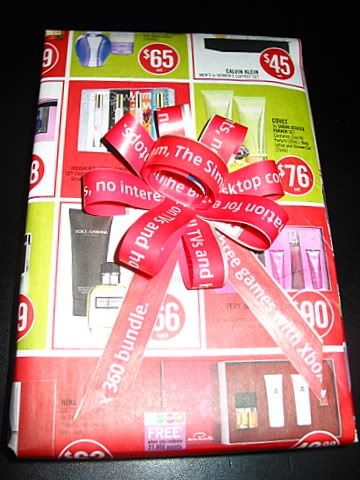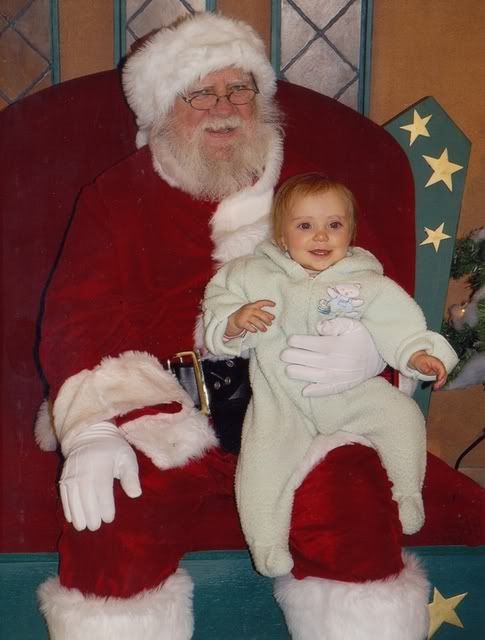this article moved me in a way i can hardly describe. the author revolutionized how i think (and talk) about breastfeeding. it's a hard pill to swallow but the truth often is, isn't it?.
Watch Your Language!
By Diane Wiessinger, MS, IBCLC
(Reprinted from the Journal of Human Lactation, Vol. 12, No. 1, 1996)
"The truth is, breastfeeding is nothing more than normal. Artificial feeding, which is neither the same nor superior, is therefore deficient, incomplete, and inferior. These are difficult words, but they have an appropriate place in our vocabulary."
The lactation consultant says, "You have the best chance to provide your baby with the best possible start in life, through the special bond of breastfeeding. The wonderful advantages to you and your baby will last a lifetime." And then the mother bottlefeeds. Why?
In part because that sales pitch could just as easily have come from a commercial baby milk pamphlet. When our phrasing and that of the baby milk industry are interchangeable, one of us is going about it wrong...and it probably isn't the multinationals. Here is some of the language that I think subverts our good intentions every time we use it.
Best possible, ideal, optimal, perfect. Are you the best possible parent? Is your home life ideal? Do you provide optimal meals? Of course not. Those are admirable goals, not minimum standards. Let's rephrase. Is your parenting inadequate? Is your home life subnormal? Do you provide deficient meals? Now it hurts. You may not expect to be far above normal, but you certainly don't want to be below normal.
When we (and the artificial milk manufacturers) say that breastfeeding is the best possible way to feed babies because it provides their ideal food, perfectly balanced for optimal infant nutrition, the logical response is, "So what?" Our own experience tells us that optimal is not necessary. Normal is fine, and implied in this language is the absolute normalcy--and thus safety and adequacy--of artificial feeding.
The truth is, breastfeeding is nothing more than normal. Artificial feeding, which is neither the same nor superior, is therefore deficient, incomplete, and inferior. Those are difficult words, but they have an appropriate place in our vocabulary.
Advantages. When we talk about the advantages of breastfeeding--the "lower rates" of cancer, the "reduced risk" of allergies, the "enhanced" bonding, the "stronger" immune system--we reinforce bottlefeeding yet again as the accepted, acceptable norm.
Health comparisons use a biological, not cultural, norm, whether the deviation is harmful or helpful. Smokers have higher rates of illness; increasing prenatal folic acid may reduce fetal defects. Because breastfeeding is the biological norm, breastfed babies are not "healthier;" artificially-fed babies are ill more often and more seriously. Breastfed babies do not "smell better;" artificial feeding results in an abnormal and unpleasant odor that reflects problems in an infant's gut. We cannot expect to create a breastfeeding culture if we do not insist on a breastfeeding model of health in both our language and our literature.
We must not let inverted phrasing by the media and by our peers go unchallenged. When we fail to describe the hazards of artificial feeding, we deprive mothers of crucial decision-making information. The mother having difficulty with breastfeeding may not seek help just to achieve a "special bonus;" but she may clamor for help if she knows how much she and her baby stand to lose. She is less likely to use artificial milk just "to get him used to a bottle" if she knows that the contents of that bottle cause harm.
Nowhere is the comfortable illusion of bottlefed normalcy more carefully preserved than in discussions of cognitive development. When I ask groups of health professionals if they are familiar with the study on parental smoking and IQ (1), someone always tells me that the children of smoking mothers had "lower IQs." When I ask about the study of premature infants fed either human milk or artificial milk (2), someone always knows that the breastmilk-fed babies were "smarter." I have never seen either study presented any other way by the media--or even by the authors themselves. Even health professionals are shocked when I rephrase the results using breastfeeding as the norm: the artificially-fed children, like children of smokers, had lower IQs.
Inverting reality becomes even more misleading when we use percentages, because the numbers change depending on what we choose as our standard. If B is 3/4 of A, then a is 4/3 of B. Choose A as the standard, and B is 25% less. Choose B as the standard, and A is 33 1/3% more. Thus, if an item costing 100 units is put on sale for "25% less,"the price becomes 75. When the sale is over, and the item is marked back up, it must be marked up 33 1/3% to get the price up to 100. Those same figures appear in a recent study (3), which found a "25% decrease" in breast cancer rates among women who were breastfed as infants. Restated using breastfed health as the norm, there was a 33-1/3% increase in breast cancer rates among women who were artificially fed. Imagine the different impact those two statements would have on the public.
Special. "Breastfeeding is a special relationship." "Set up a special nursing corner." In or family, special meals take extra time. Special occasions mean extra work. Special is nice, but it is complicated, it is not an ongoing part of life, and it is not something we want to do very often. For most women, nursing must fit easily into a busy life--and, of course, it does. "Special" is weaning advice, not breastfeeding advice.
Breastfeeding is best; artificial milk is second best. Not according to the World Health Organization. Its hierarchy is: 1) breastfeeding; 2) the mother's own milk expressed and given to her child some other way; 3) the milk of another human mother; and 4) artificial milk feeds (4). We need to keep this clear in our own minds and make it clear to others. "The next best thing to mother herself" comes from a breast, not from a can. The free sample perched so enticingly on the shelf at the doctor's office is only the fourth best solution to breastfeeding problems.
There is a need for standard formula in some situations. Only because we do not have human milk banks. The person who needs additional blood does not turn to a fourth-rate substitute; there are blood banks that provide human blood for human beings. He does not need to have a special illness to qualify. All he needs is a personal shortage of blood. Yet only those infants who cannot tolerate fourth best are privileged enough to receive third best. I wonder what will happen when a relatively inexpensive commercial blood is designed that carries a substantially higher health risk than donor blood. Who will be considered unimportant enough to receive it? When we find ourselves using artificial milk with a client, let's remind her and her health care providers that banked human milk ought to be available. Milk banks are more likely to become part of our culture if they first become part of our language.
We do not want to make bottlefeeding mothers feel guilty. Guilt is a concept that many women embrace automatically, even when they know that circumstances are truly beyond their control. (My mother has been known to apologize for the weather.)
Women's (nearly) automatic assumption of guilt is evident in their responses to this scenario: Suppose you have taken a class in aerodynamics. You have also seen pilots fly planes. Now, imagine that you are the passenger in a two-seat plane. The pilot has a heart attack, and it is up to you to fly the plane. You crash. Do you feel guilty?
The males I asked responded, "No. Knowing about aerodynamics doesn't mean you can fly an airplane." "No, because I would have done my best." "No. I might feel really bad about the plane and pilot, but I wouldn't feel guilty." "No. Planes are complicated to fly, even if you've seen someone do it."
What did the females say? "I wouldn't feel guilty about the plane, but I might about the pilot because there was a slight chance that I could have managed to land that plane." "Yes, because I'm very hard on myself about my mistakes. Feeling bad and feeling guilty are all mixed up for me." "Yes, I mean, of course. I know I shouldn't, but I probably would." "Did I kill someone else? If I didn't kill anyone else, then I don't feel guilty." Note the phrases "my mistakes," "I know I shouldn't," and "Did I kill anyone?" for an event over which these women would have had no control!
The mother who opts not to breastfeed, or who does not do so as long as she planned, is doing the best she can with the resources at hand. She may have had the standard "breast is best" spiel (the course in aerodynamics) and she may have seen a few mothers nursing at the mall (like watching the pilot on the plane's overhead screen). That is clearly not enough information or training. But she may still feel guilty. She's female.
Most of us have seen well-informed mothers struggle unsuccessfully to establish breastfeeding, and turn to bottlefeeding with a sense of acceptance because they know they did their best. And we have seen less well-informed mothers later rage against a system that did not give them the resources they later discovered they needed. Help a mother who says she feels guilty to analyze her feelings, and you may uncover a very different emotion. Someone long ago handed these mothers the word "guilt." It is the wrong word.
Try this on: You have been crippled in a serious accident. Your physicians and physical therapists explain that learning to walk again would involve months of extremely painful and difficult work with no guarantee of success. They help you adjust to life in a wheelchair, and support you through the difficulties that result. Twenty years later, when your legs have withered beyond all hope, you meet someone whose accident matched your own. "It was difficult," she says. "It was three months of sheer hell. But I've been walking every since." Would you feel guilty?
Women to whom I posed this scenario told me they would feel angry, betrayed, cheated. They would wish they could do it over with better information. They would feel regret for opportunities lost. Some of the women said they would feel guilty for not having sought out more opinions, for not having persevered in the absence of information and support. But gender-engendered guilt aside, we do not feel guilty about having been deprived of a pleasure. The mother who does not breastfeed impairs her own health, increases the difficulty and expense of infant and child rearing, an dismisses one of life's most delightful relationships. She has lost something basic to her own well-being. What image of the satisfactions of breastfeeding do we convey when we use the word "guilt"?
Let's rephrase, using the words women themselves gave me: "We don't want to make bottlefeeding mothers feel angry. We don't want to make them feel betrayed. We don't want to make them feel cheated." Peel back the layered implications of "we don't want to make them feel guilty," and you will find a system trying to cover its own tracks. It is not trying to protect her. It is trying to protect itself. Let's level with mothers, support them when breastfeeding doesn't work, and help them move beyond this inaccurate and ineffective word.
Pros and cons, advantages and disadvantages. Breastfeeding is a straight-forward health issue, not one of two equivalent choices. "One disadvantage of not smoking is that you are more likely to find secondhand smoke annoying. One advantage of smoking is that it can contribute to weight loss." The real issue is differential morbidity and mortality. The rest--whether we are talking about tobacco or commercial baby milks--is just smoke.
One maternity center uses a "balanced" approach on an "infant feeding preference card" (5) that lists odorless stools and a return of the uterus to its normal size on the five lines of breastfeeding advantages. (Does this mean the bottlefeeding mother's uterus never returns to normal?) Leaking breasts and an inability to see how much the baby is getting are included on the four lines of disadvantages. A formula-feeding advantage is that some mothers find it "less inhibiting and embarrassing." The maternity facility reported good acceptance by the pediatric medical staff and no marked change in the rates of breastfeeding or bottlefeeding. That is not surprising. The information is not substantially different from the "balanced" lists that the artificial milk salesmen have peddled for years. It is probably an even better sales pitch because it now carries very clear hospital endorsement. "Fully informed," the mother now feels confident making a life-long health decision based on relative diaper smells and the amount of skin that shows during feedings.
Why do the commercial baby milk companies offer pro and con lists that acknowledge some of their product's shortcomings? Because any "balanced" approach that is presented in a heavily biased culture automatically supports the bias. If A and B are nearly equivalent, and if more than 90% of mothers ultimately choose B, as mothers in the United States do (according to an unpublished 1992 Mothers' Survey by Ross Laboratories that indicated fewer than 10% of U.S. mothers nursing at a year), it makes sense to follow the majority. If there were an important difference, surely the health profession would make a point of not staying out of the decision-making process.
It is the parents' choice to make. True. But deliberately stepping out of the process implies that the "balanced" list was accurate. In a recent issue of Parenting magazine, a pediatrician comments, "When I first visit a new mother in the hospital, I ask, 'Are you breastfeeding or bottlefeeding?' If she says she is going to bottlefeed, I nod and move on to my next questions. Supporting new parents means supporting them in whatever choices they make; you don't march in postpartum and tell someone she's making a terrible mistake, depriving herself and her child." (6)
Yet if a woman announced to her doctor, midway through a routine physical examination, that she took up smoking a few days earlier, the physician would make sure she understood the hazards, reasoning that now was the easiest time for her to change her mind. It is hypocritical and irresponsible to take a clear position on smoking and "let parents decide" about breastfeeding without first making sure of their information base. Life choices are always the individual's to make. That does not mean his or her information sources should be mute, nor that the parents who opt for bottlefeeding should be denied information that might prompt a different decision with a subsequent child.
Breastfeeding. Most other mammals never even see their own milk, and I doubt that any other mammalian mother deliberately "feeds" her young by basing her nursing intervals on what she infers the baby's hunger level to be. Nursing quiets her young and no doubt feels good. We are the only mammal that consciously uses nursing to transfer calories...and we're the only mammal that has chronic trouble making that transfer.
Women may say they "breastfed" for three months, but they usually say they "nursed" for three years. Easy, long-term breastfeeding involves forgetting about the "breast" and the "feeding" (and the duration, and the interval, and the transmission of the right nutrients in the right amounts, and the difference between nutritive and non-nutritive suckling needs, all of which form the focus of artificial milk pamphlets) and focusing instead on the relationship. Let's all tell mothers that we hope they won't "breastfeed"--that the real joys and satisfactions of the experience begin when they stop "breastfeeding" and start mothering at the breast.
All of us within the profession want breastfeeding to be our biological reference point. We want it to be the cultural norm; we want human milk to be made available to all human babies, regardless of other circumstances. A vital first step toward achieving those goals is within immediate reach of every one of us. All we have to do is...watch our language.
References
Olds D. L., Henderson, C. R. Tatelbaum, R.: Intellectual impairment in children of women who smoke cigarettes during pregnancy. Pediatrics 1994; 93:221-27.
Lucas, A., Morley, R., Cole, T.J., Lister, G., Leeson-Payne, C.: Breast milk and subsequent intelligence quotient in children born preterm. Lancet 1992; 339 (8788): 261-64.
Fruedenheim, J.L., Graham, S., Laughlin, R., Vena, J.E., Bandera, E., et al: Exposure to breastmilk in infancy and the risk of breast cancer. Epidemiology 1994, 5:324-30.
UNICEF, WHO, UNESCO: Facts for Life: A Communication Challenge. New York: UNICEF 1989; p. 20.
Bowles, B.B., Leache, J., Starr, S., Foster, M.: Infant feeding preferences card. J Hum Lact 1993; 9: 256-58.
Klass, P.: Decent exposure. Parenting (May) 1994; 98-104.


 in the Philippines the formula companies give doctors, midwives and nurses expensive cruises, holiday packages and take them out for expensive evenings all to get THEIR formula in their offices and samples in their 'take home packages" given to new moms.. the rate of formula feeding is really high over there.. most women think they can't produce good milk , or that it is genetic - "well NO ONE in our family could ever produce milk. so they don't even try."
in the Philippines the formula companies give doctors, midwives and nurses expensive cruises, holiday packages and take them out for expensive evenings all to get THEIR formula in their offices and samples in their 'take home packages" given to new moms.. the rate of formula feeding is really high over there.. most women think they can't produce good milk , or that it is genetic - "well NO ONE in our family could ever produce milk. so they don't even try." 






